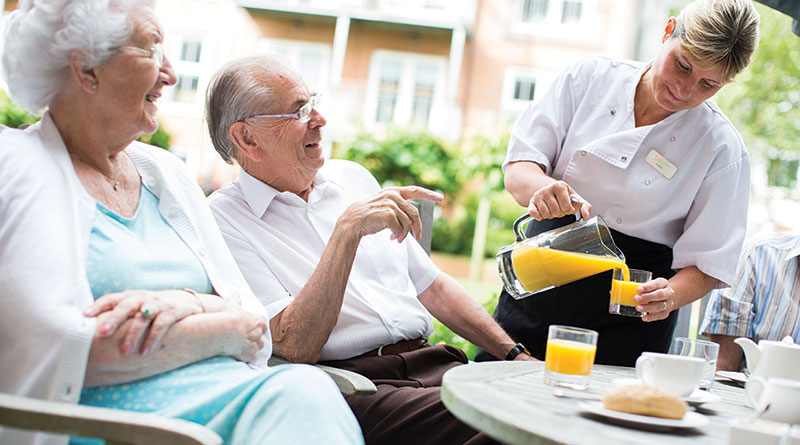The Huge Impact of Catering in Care
Article by Laura Tighe, managing director for health, care, and retirement living, Caterplus (www.caterplus.co.uk)
Food and drink served at care facilities have a huge impact on residents. Meals must provide all the right nutrients to keep residents healthy and satisfied and the portion sizes need to be fulfilling, but not overwhelming, and service goes far beyond the basics of keeping residents fed.
Food is also a social vehicle; mealtimes see residents interact with each other and with care staff, providing important socialisation and relationship-building time. The type of meals served can also be impactful, helping residents remember memories through their different senses.
Continuous improvement should be at the core of any food service provider’s approach in a care setting. By dedicating substantial resources to enhancing menu planning, nutrition, taste, flavour, hydration, food presentation, and technology, catering in care can become something beyond simply providing sustenance to residents.
An in-house dietician should work closely with care staff to understand the bespoke needs of the residents in each location, helping to build the most appropriate menu. This representative needs extensive knowledge about the specialised dietary requirements to support illnesses such as dementia and dysphagia, ensuring that the food is delicious and supports residents’ health needs.
What to serve
Fresh, seasonable ingredients should be used to prepare nutritious meals, creating a selection of familiar, traditional favourites and exciting new dishes for residents to enjoy, including residents requiring texture-modified and specialist diets. Menus are always aimed at meeting the dietary, nutritional, and cultural needs of residents. It’s important to keep traditional choices that customers love but it is also nice to present something new.
Themed meal events are a lovely way to bring people together, introduce new flavours and add value and enjoyment for residents. Working closely with managers at homes, you can plan, manage, and deliver regular special events typically centred around food themes, creating an enhanced social experience at mealtimes.
Engaging residents at mealtimes
Integrating employees within the community at the care homes during meal times is key. When mealtimes take place, employees can engage with residents and enable better social relations. Using this time to interact is essential for residents’ health and well-being, and also means staff are always on hand to help residents.
Ultimately, food is a wholly social vehicle, and it can be used to help integrate with the wider local community. Afternoon tea sessions are a great way to invite people, such as families, friends, and young people into homes. The research around intergenerational relationships demonstrates fantastic results, a popular idea includes inviting children from local schools to come in and spend time with the residents, promoting learning and positive socialisation for all generations.
Sensory tables are fully portable projection systems that can be used on any surface, and can also do a great job of engaging residents. With emphasis on motion-activation, the inclusive sensory activities reward any level of participation and help to engage and motivate all generations. By looking to different, innovative ways to enrich residents’ days, there can be inspiration for the catering teams and how they use food as a similar vehicle.
Residents love to see refreshed decorations too. Reimagining the dining rooms depending on the celebration can help make meal times that much more exciting and interactive for the residents, with menus reflecting the celebration where applicable, creating a full experience.
Building better
Research from the British Nutrition Foundation helps catering teams understand in wider terms the importance of nutrition in older adults. By sharing the work from inside care homes with these organisations, we can help enable further research in this field and make more informed decisions about food choices for residents.
In healthcare catering the priority is always to share positivity through food and for residents to be happy and comfortable.

